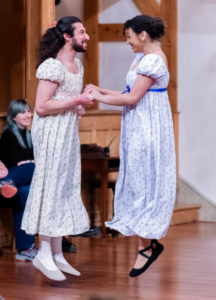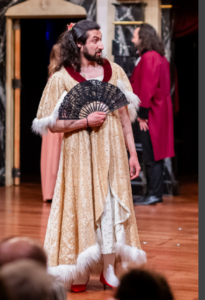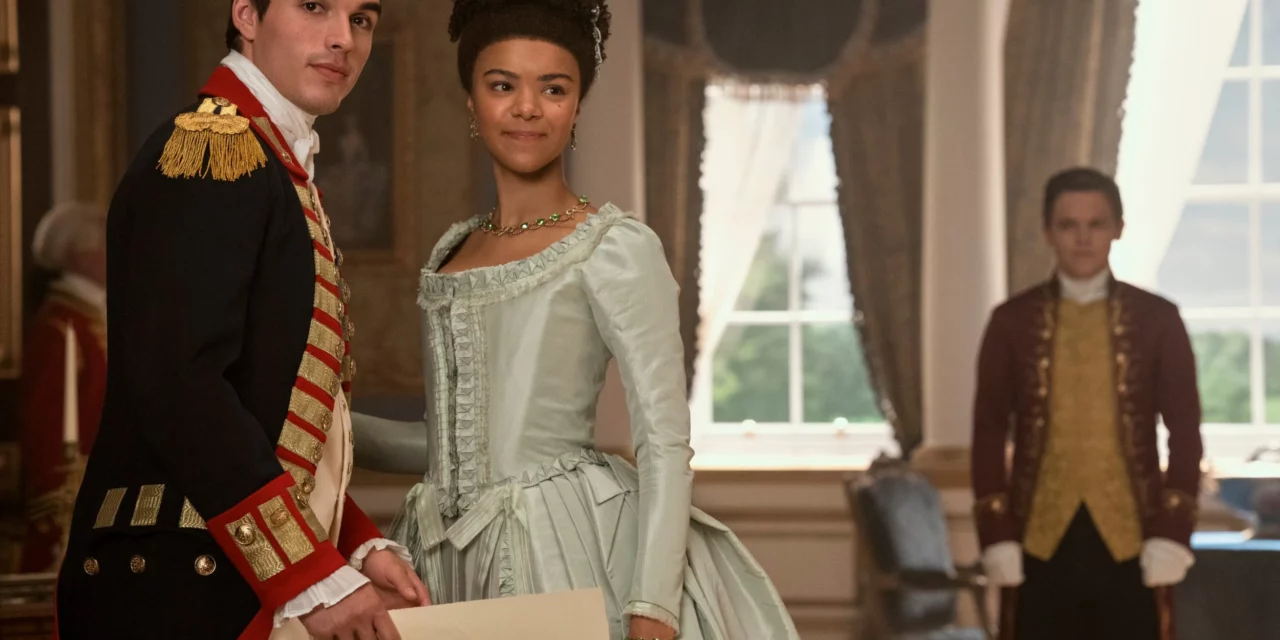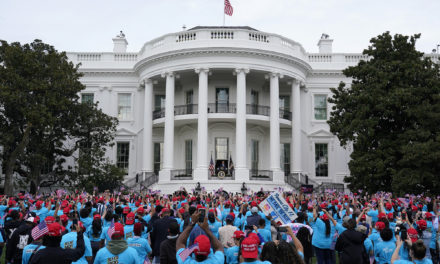Simon Webb, historian, novelist, journalist, and producer of the YouTube channel “History Debunked,” very recently coined a phrase or, more properly, a label that some of us may find useful. Applied to the recent spate over the last five years of television dramatizations, very many from the BBC and, here, PBS, that purport to faithfully realize the works of great British and European fiction, the label describes an utterly ridiculous and non-historical, even anti-historical policy of multi-racial casting in period dramas, periods in which the population of the countries where the dramas are set were as a matter of plain fact predominantly, overwhelmingly Caucasian. Mr. Webb’s label is the “Bridgerton Effect,” named after the silly and trashy series “Bridgerton,” in which black, and I think recently Asian, high-born lords and ladies right up to the queen herself cavort naughtily and haughtily in Georgian England.
There would be little to complain of in this tendency if it indicated a strong taste for farce. But, as Webb has argued, the recent appearances of a black Sophie in Tom Jones, a black Javert in Les Misérables, and, in “Bridgerton,” a black Queen Charlotte (née Charlotte of Mecklenburg-Strelitz) attended by black ladies-in-waiting skew history beyond all recognition, that is, for those who know history. That said, Webb opines that had the producers of these shows prefaced their episodes with narrative voice-over informing the audience that the drama rested on the premise of an alternate universe, well, viewers might have suspended their disbelief at least long enough to learn exactly what that universe was. He goes on to state the obvious: they didn’t.

Of that last thought, I will disagree somewhat with Mr. Webb. The new world of televised dramatized classics is the alternate universe. Its population consists of leftist producers, directors, writers, and corporate boards whose constant handwringing over their past racist and colonialist sins persuades them to distort history and literature as a perverse act of atonement. The motive? Perhaps they calculate that a rising generation of youths ignorant of their past and disinclined to read will swallow whole their fabricated “history” as 24-carat, solid-gold truth, thereby guaranteeing that they won’t repeat the sins of their fathers.
Of course, this line of thinking flies directly in the face of logic. If lords and ladies in England’s past really were black, they were also privileged and, therefore, hardly objects of racism. But don’t expect logic here. The kiddies and even adults must be schooled, and the content of the curriculum includes as its main feature the Bridgerton Effect.
What has happened on television has been occurring on stage for a while. Is that also the Bridgerton Effect? Somehow casting a black Javert on stage doesn’t fly in the face of literary sense the way it would on television or film, possibly due to the theater’s unspoken rule: audiences know they’re before in a theater with actors, living and breathing one, right on the stage in front of them, but the audience must pretend otherwise. That rule can take people only so far, and so viewers of a play learn to wink at one another when something improbable happens.

But even that rule has its limits. Recently, the American Shakespeare Company in Staunton, Virginia, produced, as they often do, one play and one adaptation that illustrate this problem. In the season that’s just ended, the play was Julius Caesar with a black Julius advertised on the company’s posters; I saw his image staring at me frequently on a recent trip to Staunton. And even though I told myself that, surely, Caesar wasn’t black, I gave myself the obligatory knowing wink and chalked up the inaccuracy to the conventions of the theater.
Not so the adaptation, which was of Jane Austen’s Pride and Prejudice. The ASC posts several photos from the play on its web page and emails, one supposes to entice the curious to buy tickets. Some of the pics have all the qualities of a “what’s-wrong-with-this-picture?” stunt. In one, two members of the Bennett family Kitty and Lydia, jump ecstatically in the air, clasping hands. For those of us who have not seen the play, the occasion for such jollity must remain a mystery. But something is undeniably wrong with the picture. Unless the story has been modified to make her into a circus freak, Kitty has not only a rather dusky complexion but a beard as well; the actor is a man, not a woman (someone we used to call an actress). In another scene, Kitty looks quizzically at an unpictured person, place, or thing, fan in hand and ballroom dress poised to sweep the floor. And yes, “she” wears high heels. How far must the suspension of disbelief go for an audience to buy that?
As I said earlier, were the production a farce, I’d smile and possibly laugh. After all, Jack Lemmon and Tony Curtis spent most of Some Like It Hot in drag, and the Three Stooges, on occasion, did the same in their comedies. However, these men masquerading as women usually were fleeing dangerous enemies, and dressing as women seemed a pretty good way to stay alive. But today we’re the ones being played for stooges by a class of woke impresarios.
What reason the ASC could have for casting a man to play Kitty, except to force-feed trans, woke ideology down its audience’s throats and dare them to object? Well, I do object, and, more than that, I’ve blocked emails from the ASC. Dear readers, take heed and do the same. Our new impresarios may be woke, but they’re also businessmen. The only thing that’ll turn their heads is a plummeting box office take or low ratings. Like Harry Truman (who certainly could tell a man from a woman), give ’em Hell.














